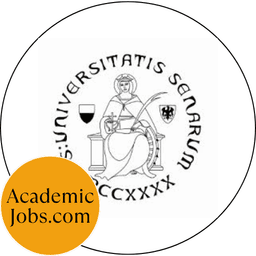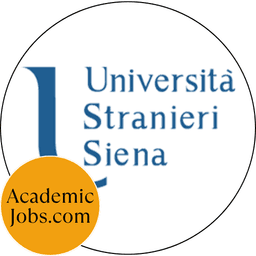Higher Education Jobs in FI
FI, or Friuli Venezia Giulia, offers vibrant academic opportunities in Italy, with leading institutions driving innovation and research. This region is known for its strong focus on science, technology, and cultural studies, making it a prime destination for academic careers FI. Discover professor ratings and connect with the academic community through Rate My Professor.
Friuli Venezia Giulia is home to a dynamic higher education sector with a blend of historical and modern academic environments. Explore careers and resources tailored to FI University Jobs at AcademicJobs.com, your gateway to faculty positions FI and beyond.
Top Universities in FI:
Faculty Job Opportunities in FI
Pursue rewarding careers in FI with roles like Assistant Professor, Lecturer, and Research Fellow. Friuli Venezia Giulia offers a range of higher education jobs FI, particularly in fields like physics, engineering, and cultural heritage studies. Salaries for faculty jobs FI typically range from €30,000 to €60,000 annually, depending on the role, experience, and institution. The demand for academic professionals in this region is growing, with a focus on interdisciplinary research and international collaboration. AcademicJobs.com provides access to the latest openings for professor positions FI, ensuring you find the right fit for your expertise.
Institutions in FI often seek candidates with a strong research background and a passion for teaching. Tenure-track positions are available for those aiming for long-term academic careers FI. Whether you're interested in lecturer roles FI or research jobs FI, this region offers unique opportunities due to its proximity to other European academic hubs. Explore tailored job listings at AcademicJobs.com Faculty Positions and start your journey in FI academia today.
Why Pursue a Career in FI Academia
Academic careers in FI offer a unique blend of intellectual stimulation and cultural richness. Friuli Venezia Giulia is strategically located at the crossroads of Western and Eastern Europe, fostering a diverse academic environment with opportunities for cross-border research collaborations. The region's universities are known for their focus on innovation, particularly in science and technology, making it an attractive destination for research jobs FI. Additionally, the region's rich history and cultural landmarks provide a vibrant backdrop for academic life. Explore these opportunities and more at AcademicJobs.com.
Salary Guide for Faculty in FI
Faculty salaries in FI vary by role, institution, and experience. Based on researched data, Assistant Professors in Friuli Venezia Giulia typically earn between €30,000 and €40,000 per year, while Associate Professors can expect €40,000 to €50,000 annually. Full Professors, particularly at prestigious institutions, may earn upwards of €60,000 per year. These figures are influenced by factors such as cost of living adjustments, research funding, and institutional budgets. Salaries FI academia are competitive within Italy, though they may be lower compared to other European countries. For the most current openings and salary insights, check AcademicJobs.com Salary Resources. 📊
Additional benefits such as research grants, housing allowances, and sabbatical opportunities can enhance overall compensation. Public universities in FI often provide more stable salaries compared to private institutions, though the latter may offer higher pay for specialized roles. Location within FI also plays a role, with urban centers like Trieste offering slightly higher pay due to higher living costs. For academics relocating to FI, understanding these nuances is key to negotiating a fair salary. Visit AcademicJobs.com Career Advice for tips on navigating faculty salaries FI. 📍
Weather and Climate in FI
Friuli Venezia Giulia experiences a varied climate due to its geographical diversity, ranging from coastal areas to mountainous regions. In coastal cities like Trieste, summers are warm with average temperatures around 25-28°C (77-82°F), while winters are mild, averaging 5-8°C (41-46°F). Inland and mountainous areas, however, can see colder winters with snowfall and temperatures dropping below freezing. Spring and autumn are generally pleasant, making them ideal for campus visits or outdoor academic events. This diverse weather FI academia impacts daily life, with coastal areas offering year-round outdoor activities and mountainous regions providing winter sports opportunities. ☀️
For academics relocating to FI, the climate offers a balance of seasonal experiences. Mild coastal winters allow for consistent outdoor engagement, while the cooler inland areas are perfect for those who enjoy a more traditional European winter. Newcomers should prepare for wetter seasons, especially in autumn, with appropriate clothing and housing considerations. The weather also influences academic schedules, with many universities hosting outdoor events in spring and summer. Understanding these patterns can help in planning research trips or campus tours. For more insights on living in FI, explore resources at AcademicJobs.com.
Work Environments in FI Universities
Work environments in FI universities are characterized by a blend of traditional Italian academic culture and modern, collaborative approaches. Campuses in Friuli Venezia Giulia prioritize research and innovation, often fostering interdisciplinary projects that connect with European networks. Faculty members report a strong sense of community, with supportive policies for work-life balance, including flexible teaching schedules and hybrid work options for administrative tasks. Diversity initiatives are also on the rise, with universities actively recruiting international talent for lecturer roles FI and other positions.
Urban campuses, such as those in Trieste, offer access to cultural amenities and vibrant city life, while rural institutions provide serene, focused environments ideal for research jobs FI. Employee satisfaction is often tied to the region's high quality of life, with access to natural landscapes like the Julian Alps and the Adriatic coast enhancing off-campus experiences. For those considering academic opportunities FI, understanding these unique work cultures is essential. Learn more about faculty experiences through Rate My Professor on AcademicJobs.com.
Lifestyle and Cost of Living in FI
Living in Friuli Venezia Giulia offers a high quality of life for academics, with a cost of living that is moderate compared to other Italian regions. Average monthly rent for a one-bedroom apartment in urban centers like Trieste ranges from €500 to €800, while rural areas may be lower at €400 to €600. Groceries and transportation costs are also reasonable, with a monthly public transport pass costing around €30-€40. The region is known for its cultural attractions, including historical sites, museums, and festivals, as well as its proximity to the Adriatic Sea and the Alps for recreational activities.
Dining in FI reflects its unique cultural blend, with influences from Italian, Austrian, and Slovenian cuisines, offering affordable yet diverse options for academics. The lifestyle FI academics enjoy includes access to vibrant arts scenes in cities and tranquil natural escapes in the countryside. Compared to national averages, FI's cost of living is slightly below major hubs like Rome or Milan, making it an attractive option for faculty. For more on balancing career and lifestyle, visit AcademicJobs.com Career Advice.
Rate My Professor: Top Educators in FI
Find and recognize top educators in FI with Rate My Professor on AcademicJobs.com. This platform allows students and peers to rate and review professors, helping you choose the best courses and mentors in Friuli Venezia Giulia. Whether you're a student planning your academic path or a professional seeking collaboration, professor ratings FI provide valuable insights into teaching styles and expertise.
Career Progression in FI Academia
Career paths in FI academia typically follow a structured progression from Assistant Professor to Associate and Full Professor roles. Tenure-track positions are competitive but rewarding, often tied to research output and teaching excellence. Salaries increase with rank, with Full Professors earning significantly more due to additional responsibilities and research funding opportunities. FI's academic strengths in science and cultural studies provide unique avenues for growth, often supported by local industry partnerships. Find tailored opportunities at AcademicJobs.com Tenure-Track.
Research and Trends in FI Higher Education
Current trends in FI higher education emphasize interdisciplinary research, particularly in physics, environmental science, and cultural heritage. Universities in Friuli Venezia Giulia are increasingly focused on sustainability and technology, aligning with European Union research priorities. Funding opportunities are available through national and international grants, supporting innovative projects. Collaborations with local industries and governments further enhance research jobs FI, making the region a hub for academic innovation. Stay updated on these trends via AcademicJobs.com Research Jobs.
Resources for FI Academics
- Professional associations like the Italian Association for Physics offer networking and resources. 🎓
- Academic journals specific to cultural studies and science are widely accessible in FI. 📚
- Conferences in Trieste often focus on European research collaboration, with costs averaging €200-€500. 💼
- Local networking events provide opportunities for interdisciplinary partnerships. 📍
Student Perspectives in FI Higher Education
Students in FI can explore diverse programs in science, humanities, and technology, with strong career outcomes in research and industry. Choosing the right professor is crucial, and platforms like Rate My Professor on AcademicJobs.com help in making informed decisions. The region's weather and lifestyle also impact student life, with coastal areas offering vibrant social scenes and mountainous regions providing peaceful study environments. Access student resources and insights at AcademicJobs.com PhD Opportunities.










